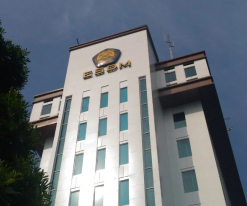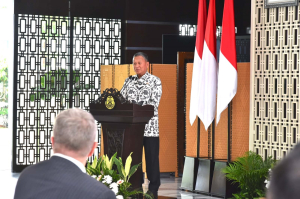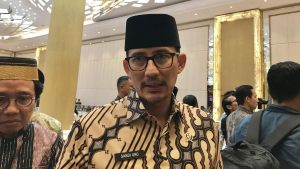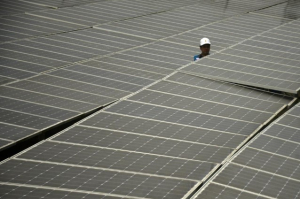ExxonMobil Cepu Ltd drills first well in Banyu Urip infill clastic project
ExxonMobil Cepu Limited (EMCL) commenced drilling the B-13 well on Saturday, April 27, 2024,marking the drilling of the first well in the Banyu Urip Infill Clastic project in the Cepu Block, Bojonegoro, East Java.
The Banyu Urip Infill Clastic drilling project is expected to span several years and consists of five Carbonate infill wells and two Clastic infill wells.
The first well, B13, is located between existing wells in the Banyu Urip field in Bojonegoro and is drilled directionally using the PDSI-40.3 rig with a planned total depth of 6,527 ftMD over the next 50 days.
Following the drilling of B13, the B12 well will be next. Both wells will be directly tied in to the Banyu Urip production facilities. Subsequently, three Carbonate infill wells and two Clastic infill wells will be drilled on separate well pads.
The drilling activities in Banyu Urip, particularly the Infill Clastic wells, are expected to increase oil production nationally and contribute to achieving the target of 1 million barrels of oil per day (BOPD) by 2030.
Head of Drilling and Well Maintenance Division, Surya Widyantoro, said that the Upstream Oil and Gas Regulartory Task Force ( SKK Migas) will continue to oversee every effort to increase oil and gas production and seek new or existing wells to boost national oil and gas production.
"New well drilling and maintenance of existing wells in 2024 will be actively carried out by contractors under the supervision of SKK Migas," Surya said in a media statement on Monday, April 29, 2024.
"We hope that this drilling will add to the potential new oil reserves from the B-13 well structure," he added.
Meanwhile, Head of Program and Communication Division at SKK Migas, Hudi D. Suryodipuro, said that in 2024, exploration well drilling activities will continue to be conducted massively by contractors, including ExxonMobil Cepu Limited (EMCL).
"The drilling is carried out in order to search for and discover giant discoveries and achieve the target of 1 million BOPD and 12 MMSCFD of gas by 2030," Hudi said.
According to Hudi, the discovery of giant discoveries is expected to attract investor interest in exploring Indonesia's promising upstream oil and gas potential.
Minister of Energy and Mineral Resources (ESDM) Arifin Tasrif previously inaugurated the Banyu Urip Infill and Clastic well spudding activities in the Cepu Block, Bojonegoro, East Java, on March 1, 2024.
"The work continues, and it is planned that there will be 7 drillings. Compared to 8 years ago, there were no drillings at all. Hopefully, the Clastic field has the same potential as the Carbonate field, which has a potential of up to 1 billion barrels," Arifin said on March 1, 2024.
The drilling activities are conducted between existing production wells in the Banyu Urip field to extract oil that was not accessible by previous wells and to prove the Clastic reservoir reserves (sandstone reservoir).
These activities are expected to increase production in the Banyu Urip field by 42 million barrels, thus boosting oil production in the Banyu Urip field, which currently contributes approximately 25 percent of national oil production.
Arifin hopes that the Infill and Clastic well drilling activities will add an additional 20,000 to 30,000 barrels per day, thereby mitigating the decline in production rates. Furthermore, it is hoped that the Clastic field will eventually yield the same results as the Carbonate field.
"We are proud to continue our cooperation with Exxon, as the world's largest company with extensive experience and technology. We continue to work together, including on carbon capture and Exxon's other investment plans in Indonesia. We hope for the best possible output from the Cepu field," Arifin said.
Tag
Already have an account? Sign In
-
Start reading
Freemium
-
Monthly Subscription
30% OFF$26.03
$37.19/MonthCancel anytime
This offer is open to all new subscribers!
Subscribe now -
Yearly Subscription
33% OFF$228.13
$340.5/YearCancel anytime
This offer is open to all new subscribers!
Subscribe now






